Let’s cut through the noise. When people say "busty babes," they’re often thinking about curves, cleavage, or Hollywood stereotypes. But real women with larger busts aren’t living in a movie. They’re dealing with back pain, ill-fitting clothes, stares in grocery stores, and the quiet exhaustion of being seen more than heard. So what do they actually crave? Not admiration. Not validation. Not to be objectified. They crave authentic connection.
They Want to Be Seen, Not Stared At
Every woman with a larger chest has a story about the guy who stared too long - or worse, the one who made a comment under his breath. It’s not flattery. It’s dehumanizing. What they want is eye contact that doesn’t linger on their chest. A smile that meets theirs. A conversation that starts with "How was your week?" instead of "Do you ever get tired of all the attention?"
Women with fuller figures often develop a radar for who sees them as a person and who sees them as a prop. They notice when someone asks about their job, their hobbies, their opinion on the new Netflix show. That’s the moment they relax. That’s when they open up.
Comfort Is Non-Negotiable
Shopping for bras isn’t a luxury. It’s a full-time job. Most off-the-rack options don’t fit. The straps dig in. The underwire pops out. The cups gap or overflow. And if you’re lucky enough to find one that works, it costs $80 - and only comes in three colors.
What they crave? Bras that don’t hurt. Tops that don’t cling. Clothes designed for real bodies, not magazine covers. Brands like Panache, Freya, and Curvy Kate aren’t just labels - they’re lifelines. But even those don’t always solve the problem. What they really want is for society to stop acting like bigger busts are a niche issue. They’re not. One in three women in the UK wear a D cup or larger. That’s not rare. That’s normal.
They Don’t Want to Be "The Type"
There’s a myth that women with larger busts are loud, flirtatious, or sexually available by default. It’s a stereotype as old as the pin-up. But the truth? They’re just as varied as anyone else. Some are introverted. Some hate parties. Some are engineers. Some are single moms. Some hate being touched without permission.
They’re tired of being typed. Tired of being assumed to be "the party girl" or "the seductress." They want to be known for their humor, their intelligence, their patience, their stubbornness - not their measurements.
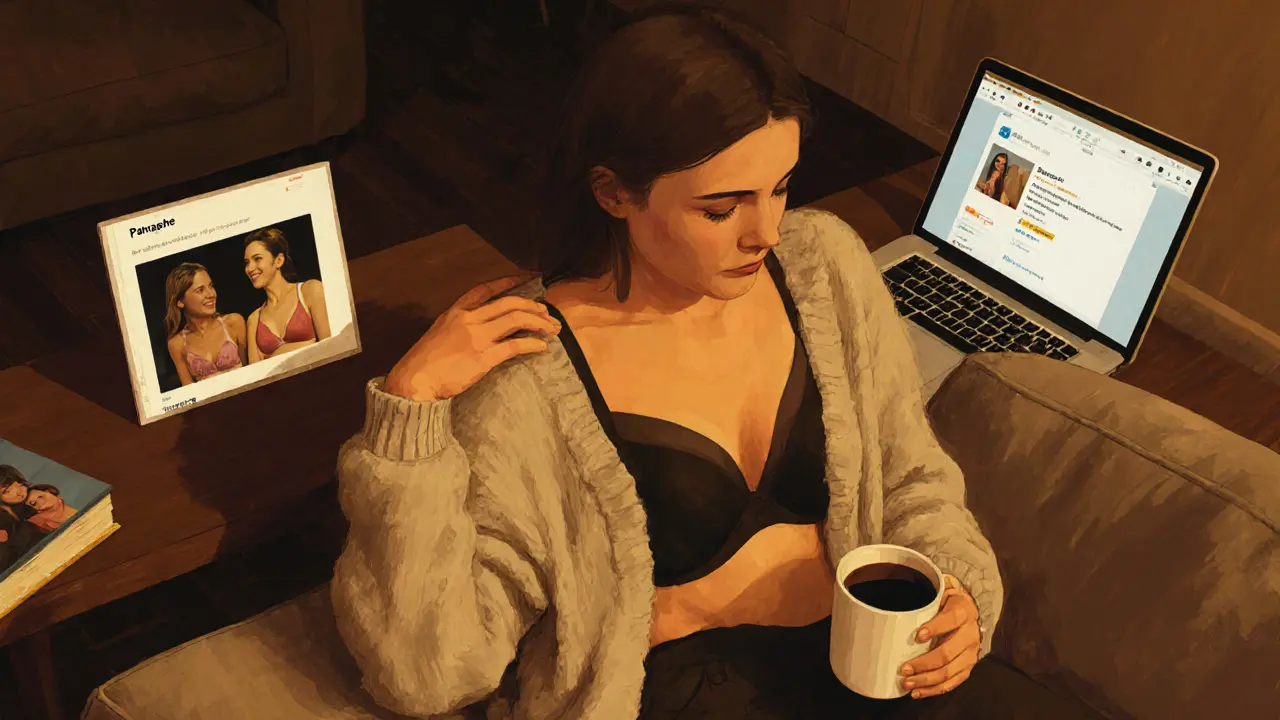
Physical Comfort Matters More Than You Think
Back pain isn’t a joke. It’s a medical reality. Studies show that women with larger breasts are three times more likely to suffer from chronic neck and shoulder pain. Posture changes. Spinal alignment shifts. Even walking can become uncomfortable.
What they crave? A partner who notices. Who asks if they need help carrying bags. Who offers to massage their shoulders after a long day. Who doesn’t make them feel guilty for needing a supportive chair or avoiding heavy lifting.
It’s not about grand gestures. It’s about noticing the small things - like the way they adjust their posture when standing, or how they wince when they reach for something on a high shelf. That’s when real care shows up.
They Want to Be Desired - Not Just Desired For Their Body
Yes, physical attraction matters. But it’s not the whole story. What they crave is to be desired for who they are - not just what they look like. A compliment on their laugh. A note about how they handled a tough situation at work. A text that says, "I loved how you talked about your mom today."
Women with larger busts are often told they’re "lucky" to have what they have. But luck doesn’t make you feel safe. It doesn’t make you feel loved. What does? Being told you’re attractive - yes - but also being told you’re thoughtful, smart, brave, or kind.
One woman I spoke with in Bristol told me: "I’ve had men tell me I’m a 10. But no one’s ever told me they admire how I raised my daughter alone. That’s the kind of thing that stays with you."
They’re Tired of Being a Trend
Every few years, pop culture "discovers" the curvy body. Magazines run features. Influencers post bikini pics. Suddenly, "busty" is trendy. But when the trend fades, so does the attention - unless you’re still "hot" by someone else’s standards.
What they crave? Consistency. Not a wave of attention followed by silence. They want someone who shows up on Tuesday morning, not just on Friday night. Who remembers their coffee order. Who texts them after a bad day. Who doesn’t disappear when the spotlight moves on.
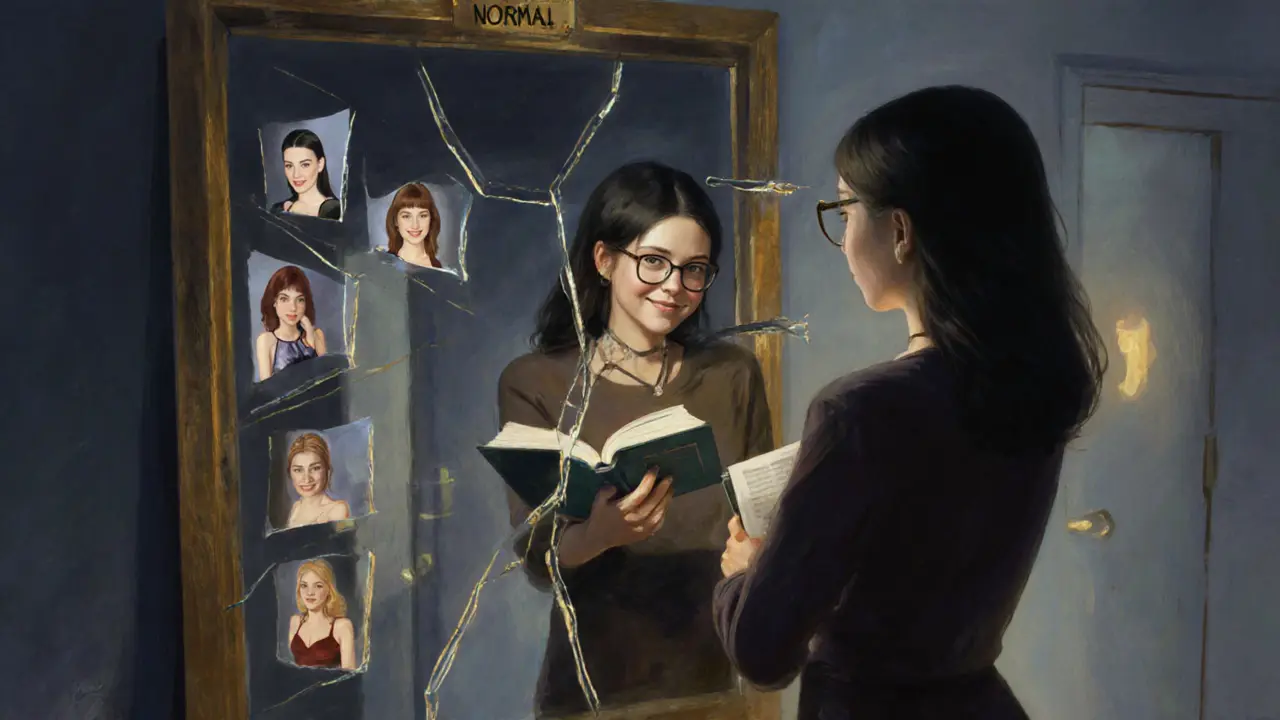
They Want to Feel Safe
Let’s be real. Larger busts come with risks. Catcalling. Unwanted touching. Comments from strangers. Even well-meaning relatives who feel entitled to ask, "Do you ever get tired of all that?"
What they crave? Boundaries that are respected. A partner who doesn’t laugh off inappropriate comments. Someone who says, "That’s not okay," when someone crosses the line. Someone who doesn’t make them feel like they’re overreacting when they say, "I don’t like that."
Safety isn’t just about physical space. It’s about emotional space. It’s about being able to say, "I’m not in the mood," without being called frigid. It’s about being able to say, "I don’t like how you’re looking at me," without being told to lighten up.
They Want to Be Normal
At the end of the day, most women with larger busts don’t want to be extraordinary. They don’t want to be icons. They don’t want to be "the busty one." They just want to be normal.
They want to walk into a store and not feel like everyone’s watching. They want to lie on their side without their bra digging into their ribs. They want to be hugged without someone making a joke. They want to be loved for who they are - not what they look like.
That’s not a fantasy. That’s not a wish. That’s basic human dignity.
What This Means for You
If you’re reading this because you’re curious about what these women want - here’s the short version:
- Look them in the eye, not down their chest.
- Ask about their life, not their measurements.
- Respect their boundaries - no exceptions.
- Notice the small things. The way they move. The way they laugh. The way they care for others.
- Don’t treat them like a fantasy. Treat them like a person.
That’s it. No grand gestures. No expensive gifts. Just presence. Just respect. Just humanity.
Women with larger busts aren’t asking for special treatment. They’re asking for the same thing everyone else wants: to be seen, heard, and valued - not for their body, but for their soul.
Do women with larger busts want to be objectified?
No. Objectification reduces a person to their physical traits. Most women with larger busts have spent years dealing with unwanted attention and comments. What they want is to be seen as whole people - with thoughts, feelings, dreams, and flaws - not just a body type.
Is it true that all busty women are confident?
No. Confidence isn’t determined by body size. Many women with larger busts struggle with self-image, especially when society constantly tells them they’re "too much" or "too sexy." Confidence comes from being treated with respect, not from how much skin you show.
Why do people assume busty women are more sexual?
It’s a harmful stereotype rooted in media, porn, and outdated cultural myths. Larger breasts have been sexualized for over a century - from pin-ups to music videos. But biology doesn’t equal behavior. A woman’s body size has zero correlation with her sexual desires, habits, or availability.
What’s the best way to compliment a woman with a larger bust?
Don’t focus on her body at all. Compliment her laugh, her ideas, her style, her work ethic, or how she handled a tough situation. If you must mention appearance, say something like, "You look really comfortable in that outfit," instead of "That top looks amazing on you." It shifts the focus from her body to her choice and confidence.
Do busty women have trouble finding partners?
Not because of their size - but because of how others treat them. Many men are intimidated by stereotypes or fear being seen as "that guy" who only likes women with curves. The real issue isn’t attraction - it’s respect. Women who are treated as equals find partners easily. Those who are objectified often withdraw.



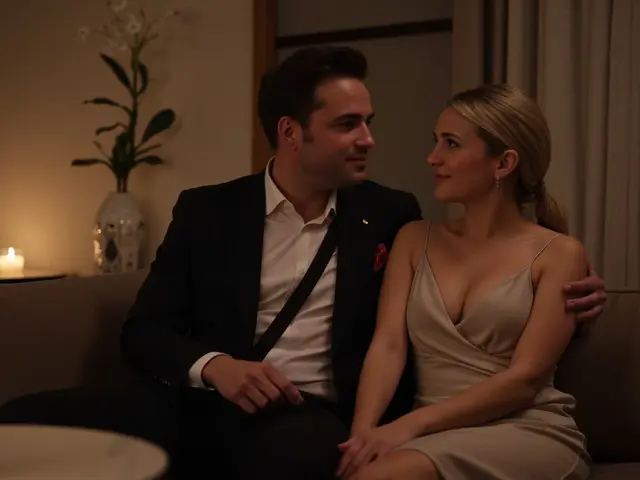
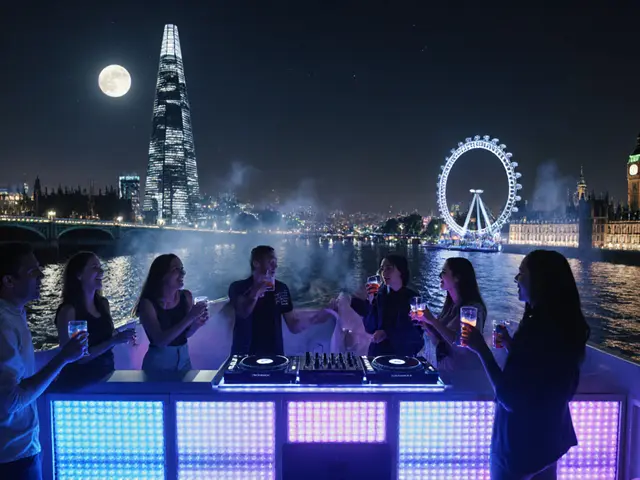
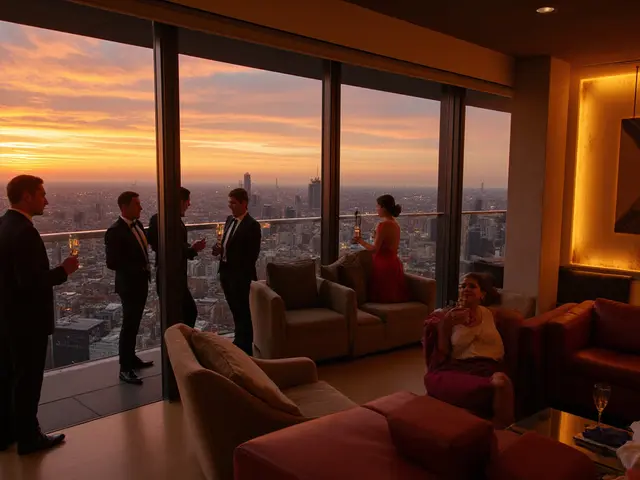

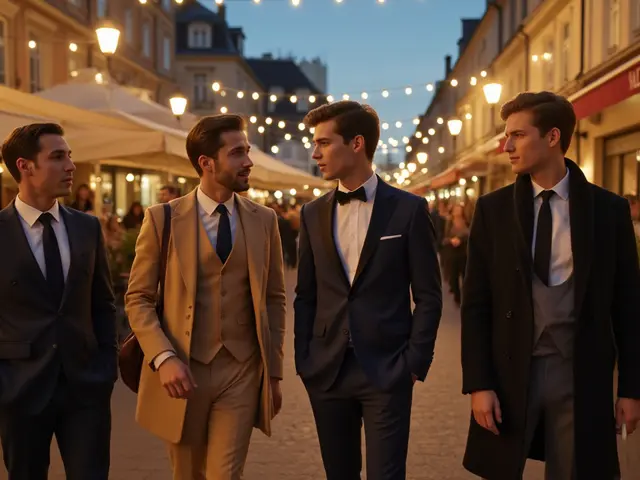
8 Comments
Madison Horst
October 31, 2025 AT 10:39I’ve been wearing a D cup since I was 15 and let me tell you, no one talks about how hard it is to find jeans that don’t make you look like a balloon. I just want to wear a pair of ripped jeans without feeling like I’m on display. It’s not about the size-it’s about being treated like a person. I had a guy at the coffee shop ask me if I ‘needed help carrying my bag’ because I had a tote. I said no, thanks. He didn’t even look me in the eye. Just stared at my chest while he waited for a reply. That’s the kind of thing that sticks.
Frank Naessens
November 1, 2025 AT 21:23Man I feel this. I’ve got a sister with a 38F and she’s got back issues worse than my dad’s knee. She’s had to quit yoga, can’t carry groceries without a cart, and the bras? Absolute torture. I used to think it was just about fashion until I saw her cry over a $95 bra that fell apart after three washes. This isn’t a ‘sexy’ problem-it’s a healthcare issue. Why don’t insurance companies cover properly fitted bras? They cover erectile dysfunction meds. That’s messed up.
Patricia Estera Esquejo
November 3, 2025 AT 09:06THIS. THIS. THIS. I’ve been waiting my whole life for someone to say this out loud. Every time I walk into a store, I feel like I’m being judged for existing. I had a cashier tell me last week, ‘You must get so many compliments!’ I wanted to scream, ‘I don’t want compliments. I want to buy milk without someone staring at my chest like it’s a billboard.’ This isn’t about being ‘confident’ or ‘empowered.’ It’s about basic human decency. Stop reducing women to body parts. We’re not props for your fantasy.
julia costa
November 4, 2025 AT 19:47people make too big a deal out of this. just wear a good bra and stop complaining. everyone has problems. you think skinny girls dont get stared at? they get called stick figures. you think tall girls dont get comments? they get asked if they play basketball. grow up. its not that hard to be normal
Clay Hamilton
November 4, 2025 AT 23:52Look I get where you’re coming from but let’s be real here-this whole post feels like a curated manifesto. Yeah, some women have it rough with back pain and bras and stares but let’s not pretend this is some unique suffering. Men get stared at too-tall guys get called giraffes, short guys get called midgets, bald guys get told they look like a cue ball. Nobody’s asking for a TED Talk on why their body type deserves dignity. We all just want to be left alone. The problem isn’t that people stare-it’s that we’ve turned every physical trait into a moral issue. Chill out. Be a person. Don’t turn your chest into a protest sign.
Paul Eric
November 6, 2025 AT 05:59Why do people always act like bigger boobs are a problem? I mean, if you got them, use them. I’ve seen girls with big chests and they’re always the ones at parties, always the ones getting attention. It’s not a burden-it’s an advantage. If you don’t like the attention, don’t wear tight shirts. Simple. Stop making it a thing. Everyone’s got something. You got big feet? Wear bigger shoes. You got big boobs? Wear a better bra. Done.
Vanness Latricia
November 6, 2025 AT 12:52Thank you for writing this. I cried reading it. I’m a mom of two, work full time, and my back hurts every single day. I’ve had strangers touch me in line at Target. I’ve had coworkers say ‘you must love being able to show off’-like my body is a gift to them. I don’t want to be a symbol. I just want to sit in a chair without wincing. I want my husband to hug me without making a joke. I want my daughter to grow up thinking her body is normal-not a spectacle. You’re right. It’s not about being sexy. It’s about being safe. It’s about being seen. And I’m so tired of being invisible in plain sight 💔
Debbie Nehikhuere
November 8, 2025 AT 03:41Madison, you’re not alone. I’ve been where you are. The worst part isn’t the pain or the stares-it’s the silence. No one talks about this because it’s ‘too personal.’ But it’s not personal. It’s systemic. We need better sizing standards. We need insurance to cover medical-grade bras. We need stores to carry more than three colors. We need men to stop treating women’s bodies like public property. This isn’t about ‘being tough.’ It’s about basic dignity. And you deserve that. Just like everyone else.